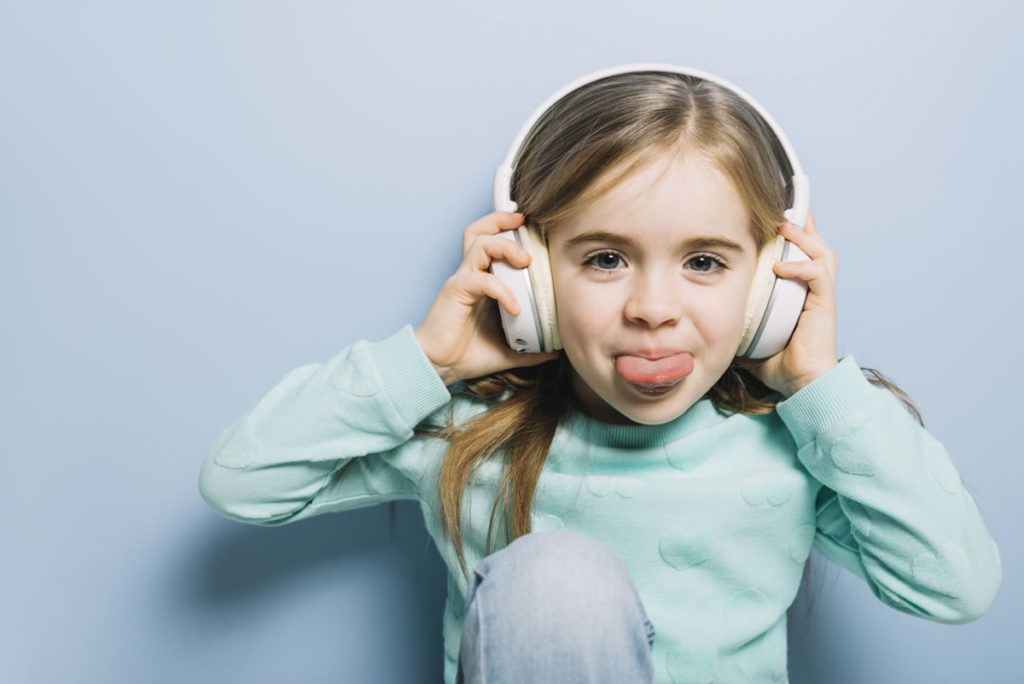For many years it has been known that some musical melodies are highly beneficial for the development of babies and children, but as time passes more and more research is done on the matter and advances in the knowledge of the brain areas and neural networks , being able to find out data such as what things stimulate them.
The most recent studies assure that the act of listening to music, playing an instrument or having children take music classes, generates new brain connections in children, which has been described as something highly positive for brain development. But why are brain connections so important in children and how does music play in generating these connections? In this article we want to delve into the subject and provide some general information on why music can help the development of children’s brains or their auditory motor regions.
Importance of brain connections in children
The establishment of neural networks is beneficial for children, since thanks to this it contributes to the development of the brain and optimizes cognitive skills , such as those related to the creativity of children. In addition, listening to music at an early age has the property of also stimulating existing connection pathways, which increases neurocerebral benefit. In line with this, another cognitive skill that can be developed with music is the perception of patterns, which has very positive long-term effects. This skill, for example, allows children to predict activities that are accompanied by music.

In this sense, the International Society of Radiologists of North America ( RSNA ) assures that music improves the brain processing of children already around 9 months or in those who have been exposed to certain musical melodies. This early stimulation manages to develop better musical intelligence and incorporates new sounds into the speech process, which translates into better cognitive abilities in children and greater neural connections. This relationship is possible thanks to the fact that when speaking, rhythmic sounds are emitted with each syllable that is pronounced.
However, in the new study carried out (and now published) an investigation was carried out with children of about 5 and 6 years old who had not received classes, who had not played an instrument, who did not possess musical skills, who had not worked with these disciplines and did not have any type of sensory disorder. The result (thanks to the diffusion tensor technique that is performed through advanced magnetic resonance imaging) made it possible for the researchers to verify that certain microstructural changes were taking place in the white matter of the brain of these children.
And it is that adequate musical instruction can affect different areas of the brain and not only in terms of cognitive skills, but also in terms of motor skills, that is, its benefits include the two cerebral hemispheres.
Music in autistic and hyperactive children
On the other hand, experts also assure that music can help children with autism spectrum disorders (ASD) and attention deficit hyperactivity disorder (ADHD). Both types of disorders affect the neurodevelopment of children and usually appear before 3 years of age. These disorders are related to hearing impairment and some aggressiveness due to excessive exposure to stimuli. That is why music (especially classical music), by having a direct positive effect on auditory development and emotional tranquility, counteracts the symptoms that these disorders may have.
But regardless of all the benefits that music has on children’s brain development , the truth is that there is also good news for adults: those who listen to any song for at least 30 minutes a day or melody of music that they like, may have a rehabilitating effect on the endometrial function of their bodies, which is an interesting finding for other disciplines such as cardiology.
In short, and although the benefits that listening to music from a very early age or practically from conception can have on children have been known for many years, the truth is that now there is even more progress in this field, confirming that music, In addition, it can produce changes in our brain, which constitutes a scientific advance of great magnitude.











































































































